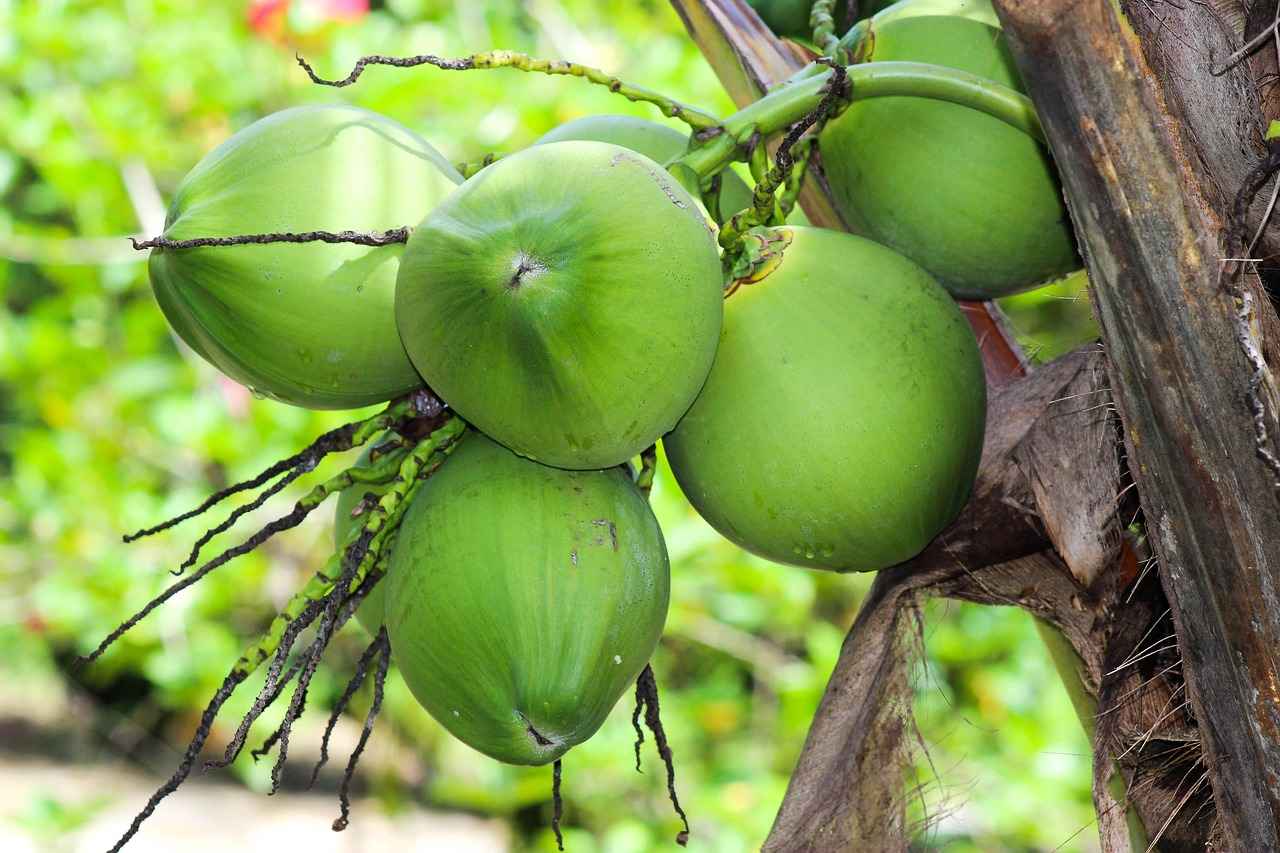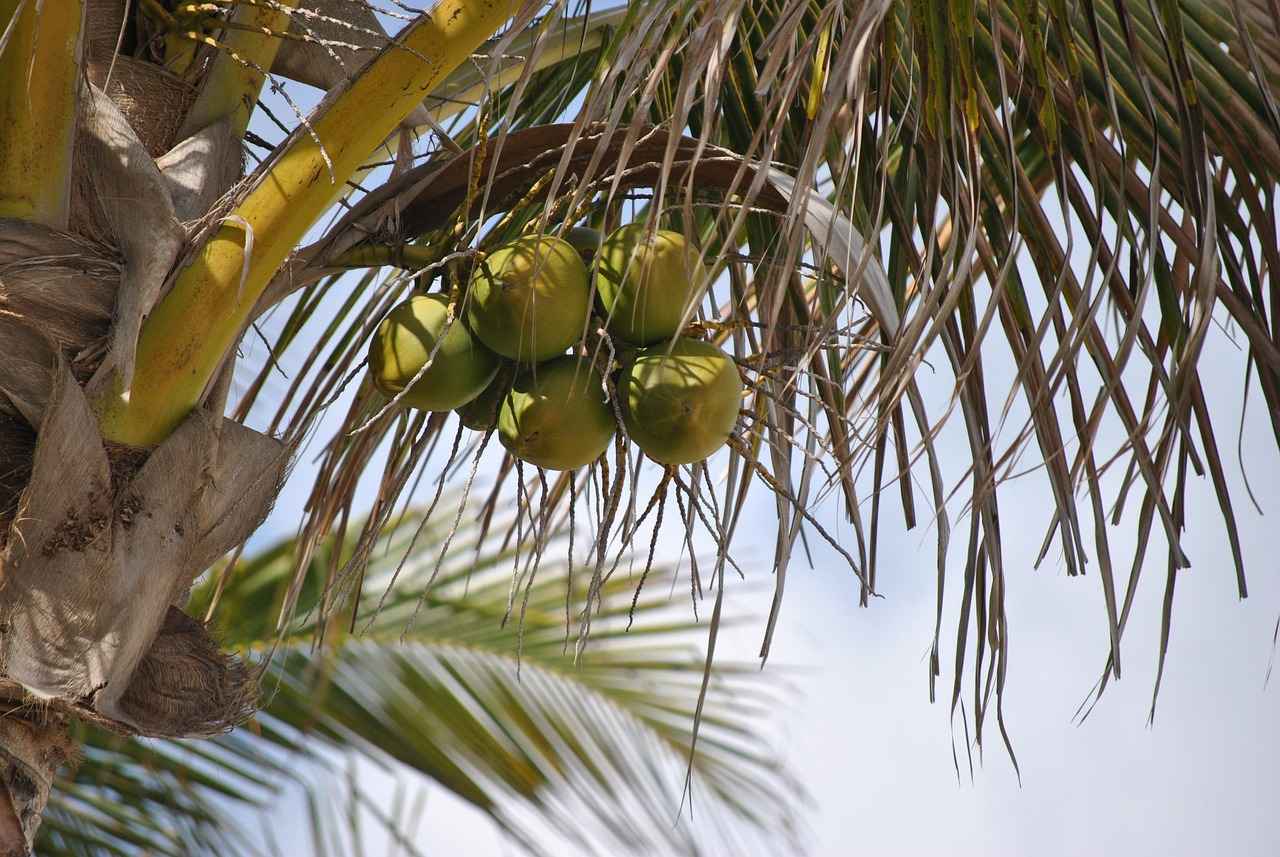This article explores the effects of coconut water on fasting, examining its nutritional content, potential benefits, and expert opinions to provide a comprehensive understanding of its role during fasting periods.
Understanding Fasting: What Does It Mean?
Fasting involves abstaining from food and drink for a specific period. There are various types of fasting, such as intermittent fasting, water fasting, and prolonged fasting, each with unique health benefits. Understanding these types lays the groundwork for discussing how coconut water fits into fasting practices.
The Nutritional Profile of Coconut Water
Coconut water is often praised for its hydration properties. It is low in calories yet rich in essential nutrients. Below is a breakdown of its nutritional components:
| Nutrient | Amount per 100ml |
|---|---|
| Calories | 19 |
| Sugars | 4.2g |
| Potassium | 250mg |
| Sodium | 105mg |
Does Coconut Water Break a Fast? Expert Opinions
Experts have varying views on whether coconut water breaks a fast. Some nutritionists argue that its low caloric content means it won’t significantly impact fasting results, while others caution that any caloric intake could disrupt metabolic processes. A balanced perspective is essential in evaluating its role during fasting.
Intermittent Fasting and Coconut Water
Intermittent fasting has gained popularity for its health benefits, including weight loss and improved metabolic health. Coconut water may be suitable during eating windows, but its consumption during fasting periods should be approached with caution.
Coconut Water and Extended Fasting
Extended fasting requires stricter adherence to food and drink restrictions. While coconut water may help alleviate fatigue and dehydration, it could interfere with the fasting state. Understanding its effects is crucial for those considering long-term fasting.
Potential Benefits of Coconut Water During Fasting
Coconut water may offer several benefits during fasting, such as:
- Hydration: Staying hydrated is essential during fasting. Coconut water can contribute significantly to hydration levels.
- Electrolyte Balance: Maintaining electrolyte levels is crucial for bodily functions, and coconut water can help replenish these essential nutrients.
When to Consume Coconut Water During a Fast
Timing is vital when incorporating coconut water into a fasting regimen:
- Pre-Fast Hydration: Drinking coconut water before starting a fast can be beneficial, enhancing hydration and preparing the body for fasting.
- Post-Fast Recovery: After breaking a fast, coconut water can be a suitable option for rehydration and nutrient replenishment, aiding in recovery.
In conclusion, while coconut water offers hydration and electrolyte benefits, its role during fasting remains a topic of debate among experts. Individuals should consider their fasting goals and consult with healthcare professionals to determine the best approach for incorporating coconut water into their fasting practices.

Understanding Fasting: What Does It Mean?
Fasting is a practice that has been embraced across cultures and religions for centuries. It involves abstaining from food and drink for a defined period, and its significance varies from spiritual purification to health benefits. This article delves into the various types of fasting and their respective health advantages, providing a foundation for understanding the role of coconut water during fasting.
There are several popular types of fasting, each with unique characteristics:
- Intermittent Fasting: This method alternates between periods of eating and fasting, often following patterns such as 16/8 or 5:2. It has gained traction for its ability to aid weight loss and improve metabolic health.
- Extended Fasting: Involves fasting for more than 24 hours, often up to several days. This type requires careful planning and monitoring due to the potential risks involved.
- Religious Fasting: Many religions incorporate fasting as a spiritual discipline, such as Ramadan in Islam or Lent in Christianity. These fasts can vary in duration and restrictions.
- Water Fasting: This involves consuming only water for a set period, promoting detoxification and potential health benefits.
The health benefits of fasting are well-documented and can include:
- Weight Loss: By reducing caloric intake, fasting can lead to weight loss and improved body composition.
- Improved Metabolic Health: Fasting can enhance insulin sensitivity and reduce inflammation, contributing to better overall health.
- Cellular Repair: Fasting triggers autophagy, a process where cells remove damaged components, potentially reducing the risk of diseases.
- Mental Clarity: Many individuals report increased focus and mental clarity during fasting periods, which may be linked to reduced blood sugar fluctuations.
As we explore the impact of coconut water on fasting, it is essential to understand that while fasting can offer numerous health benefits, the choice of beverages during this period is crucial. Coconut water, often hailed for its hydration properties, may play a significant role in enhancing the fasting experience. By providing essential electrolytes and hydration, coconut water could support individuals in maintaining their fast while ensuring that their bodies remain nourished.
In summary, fasting is a multifaceted practice with various methods and health benefits. As we transition into discussing the nutritional profile of coconut water, it becomes clear that understanding how different beverages interact with fasting is vital for optimizing health outcomes.

The Nutritional Profile of Coconut Water
Coconut water, often referred to as nature’s sports drink, is a popular beverage that is celebrated not only for its refreshing taste but also for its impressive nutritional profile. Understanding the components of coconut water is essential, especially for those considering its use during fasting periods. This section delves into the key nutritional elements of coconut water, including its caloric content, natural sugars, and essential electrolytes.
Coconut water is often praised for its hydration properties. It contains a variety of nutrients that can play a significant role in maintaining health, particularly during fasting. Here, we break down its nutritional components:
| Nutrient | Amount per 100 ml |
|---|---|
| Calories | 19 |
| Carbohydrates | 3.7 g |
| Sugars | 2.6 g |
| Potassium | 250 mg |
| Sodium | 105 mg |
| Magnesium | 25 mg |
As seen from the table, coconut water is low in calories, making it a suitable option for those who are monitoring their caloric intake during fasting. With only 19 calories per 100 ml, it provides a guilt-free hydration source.
The low caloric content of coconut water is particularly appealing to those practicing intermittent fasting or calorie restriction. Unlike many other beverages, coconut water does not contribute significantly to daily caloric intake, making it an excellent choice for hydration without breaking a fast.
Coconut water’s rich electrolyte content is one of its most significant benefits. It contains vital electrolytes such as potassium and sodium, which are essential for maintaining hydration and supporting bodily functions. During fasting, particularly extended fasting, maintaining electrolyte balance is crucial to avoid dehydration and fatigue.
Research indicates that consuming coconut water can help replenish lost electrolytes, making it beneficial for those who engage in physical activity or experience prolonged fasting. The presence of magnesium and other trace minerals also supports overall health.
Experts have varying views on whether coconut water breaks a fast. Some nutritionists argue that due to its low caloric content and hydrating properties, it does not significantly impact fasting benefits. Others caution that even small amounts of calories can trigger metabolic responses, potentially interrupting the fasting state.
For individuals practicing intermittent fasting, coconut water can serve as a refreshing beverage that aids hydration without substantially increasing caloric intake. It can be consumed during the fasting window, especially if one feels dehydrated.
During extended fasting, where strict adherence to food and drink restrictions is necessary, the decision to include coconut water should be made carefully. While it may provide hydration and electrolytes, it can also introduce calories that some may wish to avoid.
Coconut water may offer several benefits during fasting, such as hydration and electrolyte balance. These advantages can enhance the fasting experience, particularly for those engaging in prolonged periods without food.
Staying hydrated is essential during fasting. Coconut water can significantly contribute to hydration levels, providing a natural source of fluids that are often more palatable than plain water.
Maintaining electrolyte levels is crucial during fasting. Coconut water not only hydrates but also helps replenish electrolytes lost during fasting or exercise, supporting overall bodily functions and preventing fatigue.
Timing is vital when incorporating coconut water into a fasting regimen. Consuming it at strategic points can maximize its benefits without disrupting the fasting state.
Drinking coconut water before starting a fast can be beneficial. This provides hydration and essential nutrients, setting a positive tone for the fasting period.
After breaking a fast, choosing the right beverage is crucial for recovery. Coconut water can be an excellent option for rehydration and replenishing lost nutrients, making it a popular choice among those who fast.
Calories in Coconut Water: A Quick Overview
Coconut water has gained popularity as a refreshing beverage, especially among health enthusiasts. When considering its role during fasting, understanding its caloric content is essential. A closer examination reveals that coconut water has a relatively low caloric value, which can be particularly beneficial for individuals who are monitoring their caloric intake during fasting periods.
Typically, an 8-ounce serving of coconut water contains about 45 calories. This low caloric value makes it a favorable choice for those practicing intermittent fasting or other fasting methods. Unlike sugary drinks or high-calorie beverages, coconut water provides hydration without significantly impacting the body’s caloric balance. This is crucial for individuals who want to maintain a state of ketosis or metabolic fasting.
In addition to its low calorie count, coconut water is naturally low in sugars, with around 9 grams of sugar per serving. This moderate sugar content, combined with its natural electrolytes, can help replenish the body during fasting, especially after intense workouts or prolonged periods without food.
Moreover, the nutritional profile of coconut water includes essential electrolytes such as potassium, sodium, and magnesium. These nutrients not only aid in hydration but also support various bodily functions that can be affected during fasting. For example, potassium helps regulate fluid balance and muscle contractions, making coconut water an excellent option for maintaining electrolyte levels without adding excessive calories.
It’s important to consider when to consume coconut water during a fasting regimen. Many experts suggest that drinking it before breaking a fast can help prepare the body for food intake. Additionally, it can serve as a refreshing option for rehydration after fasting, ensuring that the body receives necessary nutrients without overwhelming the digestive system.
In summary, the caloric content of coconut water is low enough to be compatible with most fasting protocols. Its combination of hydration, electrolytes, and minimal calories makes it a practical choice for those looking to enhance their fasting experience. As always, it is advisable to listen to your body and consult with a healthcare professional if you have specific dietary concerns or conditions.
Electrolytes in Coconut Water: Hydration Benefits
Coconut water has gained significant attention in recent years, particularly for its potential health benefits during fasting. One of the standout features of coconut water is its impressive electrolyte content, which includes essential minerals such as potassium and sodium. These nutrients play a crucial role in maintaining hydration and supporting recovery, especially during prolonged fasting periods.
During fasting, the body undergoes various physiological changes, and maintaining proper electrolyte balance is vital. Electrolytes are charged minerals that help regulate fluid balance, nerve function, and muscle contractions. When fasting, individuals may experience a decrease in electrolyte levels due to a lack of food and drink intake. This is where coconut water can serve as an effective solution.
Potassium is particularly important because it helps to regulate blood pressure and supports heart health. A single cup of coconut water contains approximately 600 mg of potassium, making it a great choice for those looking to replenish their electrolytes. Additionally, potassium aids in preventing muscle cramps, which can be a concern during extended periods of fasting.
Sodium, on the other hand, is essential for maintaining fluid balance and preventing dehydration. While many people tend to avoid sodium due to its association with high blood pressure, it is crucial to replenish sodium levels during fasting, especially if engaging in physical activity. Coconut water contains a modest amount of sodium, which can help restore balance in the body.
Moreover, the natural sugars found in coconut water provide a quick source of energy without overwhelming the body with calories. This characteristic makes coconut water an appealing option for those who want to stay hydrated while avoiding significant caloric intake during fasting. The combination of electrolytes and natural sugars can aid in enhancing overall well-being and performance during fasting.
Additionally, coconut water is low in calories, typically containing about 46 calories per cup. This low caloric content allows individuals to enjoy its benefits without significantly impacting their fasting goals. As hydration is key to successful fasting, incorporating coconut water can facilitate better hydration and support metabolic functions.
Experts recommend consuming coconut water strategically during fasting. For instance, drinking it before starting a fast can help ensure that the body is well-hydrated. This pre-fast hydration can lead to a more comfortable fasting experience and help mitigate potential side effects such as headaches or fatigue.
In conclusion, the electrolyte profile of coconut water, particularly its potassium and sodium content, makes it a valuable addition to a fasting regimen. By aiding in hydration and electrolyte balance, coconut water can enhance the overall fasting experience, making it easier to achieve health goals. Whether consumed before, during, or after fasting, coconut water offers a refreshing and nutritious option to support hydration and recovery.

Does Coconut Water Break a Fast? Expert Opinions
When it comes to fasting, the debate surrounding what can or cannot be consumed often leads to confusion. One such topic is the consumption of coconut water during fasting periods. Experts, including nutritionists and dietitians, have varying views on whether coconut water breaks a fast or if it can be included without disrupting the fasting state.
Understanding Fasting and Its Goals
Fasting can be done for various reasons, including weight loss, detoxification, or spiritual practices. The primary goal is to abstain from food and sometimes beverages, allowing the body to enter a state of ketosis or autophagy. This leads to a myriad of health benefits, such as improved metabolic health and enhanced cellular repair processes.
The Nutritional Content of Coconut Water
Coconut water is often celebrated for its refreshing taste and hydration properties. It contains approximately 46 calories per cup, along with natural sugars, electrolytes, and vitamins. Key electrolytes such as potassium and sodium play a significant role in maintaining hydration, especially during fasting when fluid intake may be limited.
Expert Insights: Does Coconut Water Break a Fast?
Nutritionists have differing opinions on the impact of coconut water on fasting. Some argue that the natural sugars and calories in coconut water can disrupt the fasting state, particularly for those adhering to strict fasting protocols. On the other hand, some experts suggest that the hydration and electrolyte benefits of coconut water can be advantageous, especially during intermittent fasting.
Intermittent Fasting and Coconut Water
Intermittent fasting, a popular method for weight management, allows for specific eating windows. During the fasting periods, the consumption of coconut water may not significantly impact insulin levels for some individuals, thus allowing them to maintain their fasting benefits. However, it is essential to consider personal goals and the type of fasting being practiced.
Extended Fasting Considerations
For those engaging in extended fasting, where the goal is to abstain from food for longer periods, the consumption of any caloric beverage, including coconut water, is generally discouraged. This is because the body needs to reach a state of ketosis, which can be disrupted by any caloric intake.
Potential Benefits of Coconut Water During Fasting
Despite the debate, coconut water does offer potential benefits during fasting. Its high electrolyte content can aid in maintaining hydration, which is crucial for overall well-being. Staying hydrated can help mitigate common fasting side effects such as headaches and fatigue.
When to Consume Coconut Water
- Pre-Fast Hydration: Drinking coconut water before starting a fast can help prepare the body and ensure adequate hydration levels.
- Post-Fast Recovery: After breaking a fast, coconut water can be an excellent choice for rehydration and replenishing lost electrolytes.
In conclusion, whether coconut water breaks a fast largely depends on the individual’s fasting goals and the type of fasting being practiced. For those practicing intermittent fasting, it may be acceptable in moderation, while those engaging in extended fasting should avoid it to maintain the integrity of their fasting state. Ultimately, it is advisable to listen to your body and consult with a healthcare professional to determine the best approach for your fasting regimen.
Intermittent Fasting and Coconut Water
Intermittent fasting has become a popular lifestyle choice for many individuals seeking to improve their health and wellness. This method involves cycling between periods of eating and fasting, and it has been linked to numerous health benefits, including weight loss, improved metabolic health, and enhanced mental clarity. However, a common question arises: Does consuming coconut water affect the fasting process? This article delves into the intricacies of intermittent fasting and the role of coconut water, examining its potential impact on fasting results.
Intermittent fasting is not a diet in the traditional sense; rather, it is an eating pattern that alternates between cycles of eating and fasting. Various methods exist, such as the 16/8 method, where individuals fast for 16 hours and eat during an 8-hour window, and the 5:2 method, which involves eating normally for five days and restricting calories on two non-consecutive days. Each approach offers unique benefits, but the core principle remains the same: restricting food intake during specific periods.
Coconut water is often hailed as a natural sports drink due to its rich electrolyte content, including potassium, sodium, and magnesium. A typical serving contains about 46 calories and 9 grams of sugar, making it a low-calorie option compared to many other beverages. These nutrients can play a vital role in hydration, especially during fasting periods when maintaining electrolyte balance is crucial.
Experts have differing opinions on whether coconut water breaks a fast. Some nutritionists argue that due to its caloric content, consuming coconut water can interrupt the fasting state, while others believe that its hydrating properties may support fasting without significantly affecting metabolic outcomes. When considering intermittent fasting, it’s essential to evaluate your goals—whether you’re aiming for weight loss, metabolic health, or other benefits.
When it comes to intermittent fasting, many practitioners prioritize caloric restriction during fasting windows to maximize fat burning. While coconut water does contain calories, its low caloric value might not be substantial enough to derail the benefits of fasting for some individuals. Additionally, its hydrating properties can help alleviate feelings of fatigue and hunger during fasting periods, making it a popular choice among those who choose to consume it during their fasting windows.
- Hydration: Staying adequately hydrated is essential for overall health and can enhance the fasting experience. Coconut water can provide a refreshing source of hydration.
- Electrolyte Replenishment: The electrolytes in coconut water can help maintain balance, especially during extended fasting periods when electrolyte depletion may occur.
The timing of coconut water consumption can be crucial. Many experts suggest drinking it during the eating window rather than the fasting period to avoid breaking the fast. However, for those who experience intense dehydration or fatigue during fasting, a small amount of coconut water might be beneficial if consumed sparingly.
After breaking a fast, choosing the right beverage can significantly impact recovery. Coconut water is an excellent option for rehydration, as it not only replenishes fluids but also provides essential nutrients that the body may need after fasting. Its natural sugars can help restore energy levels, making it a favorable choice for many.
In conclusion, while coconut water does contain calories and sugars, its potential benefits for hydration and electrolyte balance during intermittent fasting cannot be overlooked. As with any dietary choice, it’s essential to listen to your body and adjust your consumption based on your individual fasting goals and experiences.
Coconut Water and Extended Fasting
Extended fasting, defined as abstaining from all food and caloric beverages for an extended period, requires strict adherence to dietary restrictions. During this time, the body’s metabolic state undergoes significant changes as it shifts from using glucose for energy to utilizing fat stores. In this context, the role of coconut water becomes a point of interest, particularly regarding its potential effects on hydration and electrolyte balance.
Coconut water is a natural beverage derived from young coconuts, rich in essential electrolytes such as potassium, sodium, and magnesium. These nutrients play a crucial role in maintaining hydration levels, especially during prolonged fasting. When the body is deprived of food, it can become dehydrated, leading to fatigue, headaches, and muscle cramps. Therefore, the inclusion of coconut water during fasting may provide a solution to combat these issues.
One of the primary concerns with extended fasting is the risk of electrolyte imbalance. As the body continues to fast, it loses electrolytes through urine and sweat. Coconut water, with its natural balance of electrolytes, can help replenish these vital minerals. For instance, just one cup of coconut water contains approximately 600 mg of potassium, which is essential for heart and muscle function. This replenishment can be particularly beneficial for those engaging in extended fasting, as it may help to mitigate the negative effects associated with electrolyte depletion.
However, it is essential to consider the caloric content of coconut water when incorporating it into an extended fasting regimen. While coconut water is relatively low in calories compared to other beverages, it still contains natural sugars. A typical serving can have around 45 calories and 9 grams of sugar. For individuals strictly adhering to a fasting protocol, even these modest calories could potentially disrupt the fasting state, depending on their specific goals.
Experts have differing opinions on whether coconut water breaks a fast. Some nutritionists argue that the electrolytes and hydration benefits it provides can enhance the fasting experience, while others maintain that any caloric intake, regardless of the source, can interrupt the metabolic benefits of fasting. This debate highlights the importance of individual goals and the context of the fast. For instance, if the primary objective is hydration and maintaining electrolyte balance, coconut water may be a suitable choice. However, if the focus is solely on achieving a complete metabolic reset, abstaining from all caloric intake would be advisable.
In conclusion, while coconut water can offer hydration and electrolyte support during extended fasting, individuals must weigh its benefits against their fasting goals. For those who choose to include it, timing is crucial. Consuming coconut water during fasting periods, particularly when feeling fatigued or dehydrated, can help maintain energy levels and overall well-being. Ultimately, understanding one’s body and fasting objectives will guide the decision on whether to incorporate coconut water into an extended fasting protocol.

Potential Benefits of Coconut Water During Fasting
Coconut water has gained popularity as a refreshing drink, particularly among health enthusiasts. When it comes to fasting, its potential benefits are worth exploring in depth. This section will discuss how coconut water can be advantageous during fasting, focusing on hydration, electrolyte balance, and overall well-being.
Maintaining adequate hydration is crucial during fasting periods. Coconut water is often referred to as nature’s sports drink due to its high water content and ability to replenish lost fluids. During fasting, especially when abstaining from all food and drink, dehydration can become a concern. Coconut water provides a refreshing option that not only hydrates but also offers a light, natural sweetness that can help curb cravings.
Another significant benefit of coconut water during fasting is its rich electrolyte content, particularly potassium and sodium. These electrolytes are essential for maintaining proper bodily functions, especially during extended periods without food. When fasting, the body can lose electrolytes through sweat and other metabolic processes. Coconut water can aid in replenishing these vital nutrients, helping to prevent symptoms like fatigue, dizziness, and muscle cramps.
During fasting, the body undergoes various metabolic changes as it shifts from using glucose for energy to burning fat. Coconut water may assist in this transition by providing a small amount of natural sugars and nutrients without overwhelming the system. This can be particularly beneficial for those engaging in intermittent fasting, as it offers a way to maintain energy levels without breaking the fast significantly.
Coconut water is also known for its digestive benefits. It contains bioactive enzymes that can aid in digestion and help maintain gut health. During fasting, some individuals may experience digestive discomfort. Consuming coconut water in moderation may help alleviate these issues, making the fasting experience more comfortable.
In addition to hydration and electrolytes, coconut water contains antioxidants that can help combat oxidative stress in the body. Fasting can sometimes lead to increased oxidative stress due to metabolic shifts. By incorporating coconut water, fasters can benefit from its antioxidant properties, supporting overall health during the fasting period.
Timing is essential when adding coconut water to your fasting regimen. It is best consumed during periods when hydration is most needed, such as before or after a fast. Drinking coconut water before starting a fast can help prepare the body by ensuring it is well-hydrated. Post-fast, it serves as an excellent option for rehydration and replenishing lost nutrients, making the transition back to regular eating smoother.
Nutritionists and health experts generally agree that coconut water can be a beneficial addition to fasting practices, particularly for those who engage in intermittent or extended fasting. However, opinions may vary on the quantity and timing of consumption. It’s crucial to listen to your body and adjust accordingly, as individual responses to coconut water can differ.
In summary, coconut water offers multiple benefits during fasting, including hydration, electrolyte balance, and digestive support. Its natural composition makes it a favorable choice for those looking to enhance their fasting experience while maintaining health and wellness.
Hydration: The Key to Successful Fasting
Staying adequately hydrated is crucial during fasting periods, as it directly impacts overall health and well-being. When the body is deprived of food and drink, it can quickly become dehydrated, leading to a range of negative effects, such as fatigue, dizziness, and decreased cognitive function. Coconut water, a natural and nutrient-rich beverage, can play a significant role in maintaining hydration during these times.
Coconut water is often referred to as nature’s sports drink due to its impressive electrolyte content. It contains essential minerals such as potassium, sodium, and magnesium, which are vital for maintaining fluid balance in the body. These electrolytes help regulate hydration levels, making coconut water an excellent choice for those observing fasting protocols.
- Potassium: A key mineral that helps control fluid balance and muscle contractions, potassium is abundant in coconut water. This mineral is particularly important during fasting, as it aids in preventing muscle cramps and fatigue.
- Sodium: While often limited in diets, sodium plays a role in maintaining blood pressure and fluid balance. Coconut water offers a small amount of sodium, which can help replenish what is lost through sweat and urine during fasting.
- Magnesium: This mineral supports numerous bodily functions, including nerve function and energy production. Staying hydrated with coconut water can help maintain adequate magnesium levels, which may dip during fasting.
Moreover, coconut water is low in calories, making it a suitable option for those who are fasting. With approximately 46 calories per cup, it provides hydration without significantly impacting caloric intake. This is particularly beneficial for individuals practicing intermittent fasting, where maintaining a low-calorie intake during the fasting window is essential.
In addition to its hydration benefits, coconut water can also enhance overall well-being during fasting. The natural sugars present in coconut water provide a quick source of energy, which can help mitigate feelings of lethargy that often accompany fasting. Furthermore, its refreshing taste can make hydration more enjoyable, encouraging individuals to drink more fluids throughout the day.
It is important to note that while coconut water can be beneficial, it should be consumed in moderation. Overconsumption may lead to an excessive intake of sugars and calories, which could disrupt fasting goals. Therefore, individuals should consider their overall dietary plan and hydration needs when incorporating coconut water into their fasting routine.
Ultimately, coconut water can serve as a valuable tool for those looking to enhance their fasting experience. By providing essential electrolytes, low calories, and a refreshing taste, it supports hydration and helps maintain energy levels. As with any dietary choice, it is essential to listen to your body and adjust your intake based on personal needs and fasting goals.
Electrolyte Balance: Why It Matters
Maintaining a proper electrolyte balance is essential for overall health, especially during fasting periods. Electrolytes, such as sodium, potassium, and magnesium, play vital roles in various bodily functions, including nerve signaling, muscle contraction, and hydration. When fasting, the body can experience fluctuations in electrolyte levels, which may lead to symptoms like fatigue, dizziness, or muscle cramps. This makes understanding how to replenish these vital nutrients during fasting crucial.
Coconut water has emerged as a popular choice for those looking to maintain electrolyte balance while fasting. Its natural composition makes it a refreshing option that can help replenish lost electrolytes. With a low caloric content and high electrolyte levels, coconut water provides a unique solution for hydration without significantly impacting caloric intake.
Electrolytes are minerals that carry an electric charge and are essential for several bodily functions. Here are some key roles they play:
- Fluid Balance: Electrolytes help regulate the balance of fluids in and out of cells, ensuring proper hydration.
- Nerve Function: They are crucial for transmitting electrical signals in the nervous system, influencing everything from reflexes to cognitive functions.
- Muscle Function: Electrolytes are necessary for muscle contraction and relaxation, making them vital for physical activity and overall mobility.
Coconut water is naturally rich in several key electrolytes, particularly potassium, sodium, and magnesium:
- Potassium: This mineral is essential for maintaining healthy blood pressure and supports heart function. A single cup of coconut water can contain up to 600 mg of potassium, making it an excellent source.
- Sodium: While often viewed negatively, sodium is necessary for fluid balance and nerve function. Coconut water contains a small amount of sodium, which can help replenish what is lost through sweat.
- Magnesium: This mineral aids in muscle function and energy production. Coconut water provides a modest amount of magnesium, contributing to overall electrolyte balance.
During fasting, especially prolonged periods without food, the body can lose electrolytes through sweat and urine. Consuming coconut water can help mitigate these losses, supporting hydration and overall well-being. It acts as a natural isotonic beverage, replenishing electrolytes without the added sugars and artificial ingredients found in many sports drinks.
Timing is crucial when incorporating coconut water into a fasting regimen. Here are some practical tips:
- Before Fasting: Consuming coconut water before starting a fast can help prime the body for the upcoming period without food, ensuring that electrolyte levels are adequate.
- During Fasting: If you are engaging in extended fasting, sipping on coconut water can provide necessary hydration and electrolyte replenishment without significantly breaking the fast.
- After Fasting: Once you break your fast, coconut water can be an excellent choice for rehydration and restoring electrolyte balance, preparing your body for the reintroduction of solid foods.
In conclusion, maintaining electrolyte levels during fasting is essential for optimal bodily functions. Coconut water serves as a natural and effective means to replenish these vital nutrients, ensuring hydration and supporting overall health during fasting periods.

When to Consume Coconut Water During a Fast
Timing is vital when incorporating coconut water into a fasting regimen. Understanding the optimal moments to consume this refreshing beverage can help maximize its benefits while ensuring that the fast remains intact. Here, we explore the best times to enjoy coconut water during fasting, focusing on hydration and nutrient replenishment without compromising the fasting state.
Pre-Fast Hydration with Coconut Water
One effective strategy is to drink coconut water before starting a fast. This practice not only aids in hydration but also prepares the body for the fasting period ahead. Coconut water is rich in electrolytes, particularly potassium and sodium, which can help maintain fluid balance and prevent dehydration during the fast. Consuming it a few hours before the fast begins allows your body to absorb these nutrients, setting a solid foundation for the fasting experience.
During the Fast: Is Coconut Water Allowed?
While many people prefer to avoid any caloric intake during fasting, the question arises: can coconut water fit into this regimen? The answer largely depends on the type of fast being followed. For those practicing intermittent fasting, a small amount of coconut water may be acceptable, as its low-calorie content (approximately 45 calories per cup) can provide hydration without significantly disrupting metabolic processes. However, it’s essential to monitor your body’s response and adjust accordingly.
Post-Fast Recovery: Should You Choose Coconut Water?
After breaking a fast, rehydration is crucial, and coconut water can be an excellent choice. Its natural sugars and electrolytes help replenish energy levels and restore hydration quickly. This makes it particularly beneficial after extended fasting periods, where electrolyte balance can be disrupted. Drinking coconut water post-fast can facilitate recovery and prepare the body for regular eating patterns.
Listening to Your Body
Ultimately, the best time to consume coconut water during a fast will vary based on individual needs and preferences. It’s essential to listen to your body and assess how it responds to coconut water consumption. For some, it may serve as a refreshing way to stay hydrated, while others may prefer to avoid it altogether to adhere strictly to their fasting protocols.
Conclusion
Incorporating coconut water into a fasting regimen can be beneficial when timed correctly. Whether consumed before the fast begins, during intermittent fasting, or after breaking the fast, it can support hydration and electrolyte balance. As with any dietary choice during fasting, personal experience and body response should guide decisions, ensuring a healthy and effective fasting experience.
Pre-Fast Hydration with Coconut Water
Preparing for a fast can significantly influence the overall experience and outcomes. One effective strategy is to focus on hydration before commencing the fast, and coconut water emerges as a popular choice for this purpose. This section delves into the advantages of drinking coconut water prior to fasting, highlighting how it can enhance the fasting experience.
First and foremost, coconut water is renowned for its hydrating properties. With its high water content, it serves as an excellent source of hydration, which is crucial when preparing for a fast. Dehydration can lead to discomfort and fatigue during fasting. By consuming coconut water beforehand, individuals can ensure their bodies are well-hydrated, setting a positive tone for the fasting period ahead.
In addition to hydration, coconut water is rich in electrolytes such as potassium, sodium, and magnesium. These minerals play a vital role in maintaining fluid balance within the body. When fasting, the body undergoes various metabolic changes, and having adequate electrolyte levels can help mitigate potential side effects such as headaches and muscle cramps. Therefore, drinking coconut water before fasting can replenish these essential nutrients, promoting overall well-being.
Moreover, coconut water is low in calories, making it an ideal choice for those who are mindful of their caloric intake. Unlike sugary drinks or heavy beverages, coconut water provides a refreshing option that won’t interfere with the fasting process. This makes it particularly appealing for individuals practicing intermittent fasting, as it allows them to stay hydrated without consuming significant calories.
Another aspect to consider is the digestive benefits of coconut water. It contains bioactive enzymes that can aid digestion and improve gut health. Having a healthy digestive system can enhance the fasting experience, as it allows the body to process nutrients more efficiently once the fast is broken.
To maximize the benefits of coconut water, it is advisable to consume it in moderation. A small serving before the fast can provide the hydration and electrolyte boost needed without exceeding caloric limits. This practice not only prepares the body for fasting but also contributes to a more comfortable and effective fasting experience.
In summary, drinking coconut water before starting a fast can be a beneficial practice. It offers hydration, replenishes essential electrolytes, and supports digestive health, all of which are crucial for a successful fasting experience. As individuals incorporate coconut water into their pre-fast routine, they may find that it enhances their overall well-being and makes the fasting period more manageable.
Post-Fast Recovery: Should You Choose Coconut Water?
After completing a fast, the body enters a state where it requires careful rehydration and nutrient replenishment. One beverage that has gained attention for its potential benefits in this context is coconut water. This section will explore whether coconut water is a suitable option for recovery after fasting, considering its nutritional profile and hydration properties.
Coconut water is a natural beverage derived from young coconuts, known for its refreshing taste and numerous health benefits. It contains a unique blend of electrolytes, vitamins, and minerals, making it a popular choice for rehydration. But does it truly aid recovery after fasting?
- Hydration: One of the primary benefits of coconut water is its ability to hydrate the body effectively. During fasting, especially prolonged periods without food or drink, the body can become dehydrated. Coconut water contains high levels of potassium and sodium, essential electrolytes that help restore fluid balance.
- Nutrient Replenishment: Coconut water is low in calories and sugars but rich in nutrients. A typical serving contains about 45 calories and 9 grams of sugar, which can provide a gentle energy boost without overwhelming the digestive system after a fast.
- Electrolyte Balance: Maintaining proper electrolyte levels is critical for muscle function and overall health. Coconut water’s natural composition can help replenish lost electrolytes, making it an excellent choice for recovery.
Experts suggest that consuming coconut water immediately after breaking a fast can facilitate a smoother transition back to regular eating. Its light and easily digestible nature means it can be absorbed quickly, providing the body with much-needed hydration and nutrients. Furthermore, the natural sugars present in coconut water can help restore energy levels without causing a spike in blood sugar.
However, it’s essential to consider individual tolerance. Some people may find that they prefer plain water or a more substantial beverage after fasting. If you are unsure about incorporating coconut water into your recovery routine, consulting with a healthcare professional or nutritionist can provide personalized guidance.
In conclusion, coconut water can be a beneficial option for post-fast recovery due to its hydrating properties and nutrient profile. Its rich content of electrolytes makes it particularly suitable for those looking to replenish lost fluids and restore balance after fasting. As with any dietary choice, listening to your body and making adjustments based on personal preferences is crucial for optimal recovery.
Frequently Asked Questions
- Does coconut water break a fast?
It depends on the type of fast you’re following. While some experts argue that coconut water contains calories and sugars that could break a fast, others believe its low caloric content makes it acceptable during certain fasting methods, like intermittent fasting.
- Can I drink coconut water while intermittent fasting?
Yes, many people choose to drink coconut water during intermittent fasting for its hydration and electrolyte benefits. Just be mindful of how it fits into your overall caloric intake for the day.
- Is coconut water beneficial for hydration during fasting?
Absolutely! Coconut water is rich in electrolytes, which can help maintain hydration levels during fasting periods. It’s a great way to replenish lost fluids and keep your body functioning optimally.
- When is the best time to consume coconut water during a fast?
For optimal benefits, consider drinking coconut water before starting your fast for hydration. After breaking your fast, it can also be a refreshing choice to help with recovery and rehydration.
- Are there any downsides to drinking coconut water while fasting?
While coconut water can be beneficial, consuming it in large amounts may add extra calories and sugars that could interfere with your fasting goals. Moderation is key!














